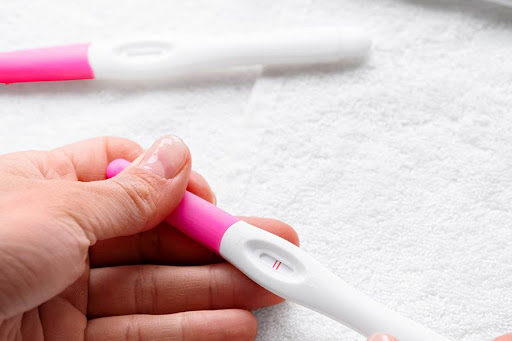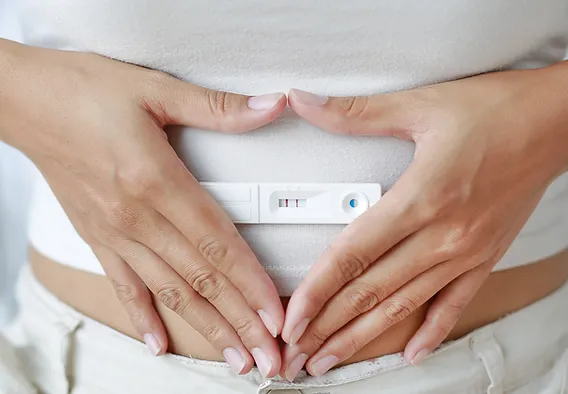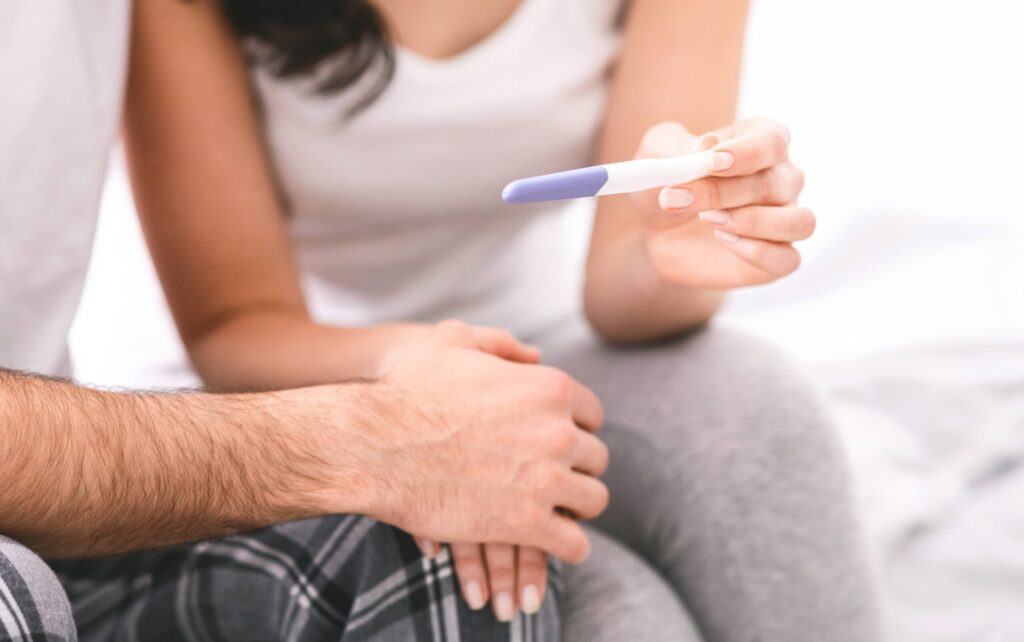Ovulation tests are designed to detect the luteinizing hormone (LH) surge that triggers ovulation, but some women wonder if they can also indicate pregnancy. This curiosity arises because LH and human chorionic gonadotropin (hCG), the hormone detected in pregnancy tests, have similar structures. In some cases, an ovulation test may show a positive result during pregnancy, leading to confusion about its accuracy as a pregnancy test.
Recommended: Do Ovulation Tests Get Darker After 5 Minutes?
This blog explores the science behind ovulation and pregnancy tests, the reasons an ovulation test might turn positive during pregnancy, and why it is not a reliable method for confirming pregnancy.
How Ovulation Tests Work
Ovulation tests work by detecting luteinizing hormone (LH) in urine, which surges approximately 24 to 36 hours before ovulation. LH plays a crucial role in triggering the release of an egg from the ovary, making these tests a useful tool for tracking fertility and increasing the chances of conception.

Most ovulation kits come with test strips or digital readers that react to the level of LH in urine. To use them effectively, individuals are advised to start testing a few days before their expected ovulation date, typically around the middle of the menstrual cycle (day 10-16 for a regular 28-day cycle). Testing is best done in the afternoon or evening since LH levels tend to rise in the morning but may take a few hours to appear in urine.
Recommended: Does Female Masturbation Affect Ovulation?
A positive ovulation test means the LH surge has been detected, indicating that ovulation is likely to occur within the next 12-36 hours. However, these tests do not confirm whether ovulation has actually happened, as an LH surge does not always result in egg release. Additionally, factors like polycystic ovary syndrome (PCOS), hormonal imbalances, and certain medications can lead to false positives or irregular LH surges, making it important to consider other ovulation signs, such as basal body temperature changes and cervical mucus consistency.
Can an Ovulation Test Detect Pregnancy?
An ovulation test is not specifically designed to detect pregnancy, but in some cases, it may show a positive result if a person is pregnant. This is because ovulation tests detect luteinizing hormone (LH), which has a molecular structure similar to human chorionic gonadotropin (hCG), the hormone produced during pregnancy. Since LH and hCG share structural similarities, an ovulation test may mistakenly detect hCG and yield a positive result.
Recommended: Does Ovulation Make You Tired?
However, ovulation tests are not a reliable method for confirming pregnancy. While they may pick up traces of hCG, they are not as sensitive or accurate as pregnancy tests, which are specifically designed to detect even small amounts of hCG in urine. Pregnancy tests are calibrated to recognize hCG at much lower levels than ovulation tests recognize LH. This means that even if an ovulation test turns positive due to pregnancy, it may not happen until later stages when hCG levels are significantly high.

Additionally, relying on an ovulation test to detect pregnancy can be misleading. Some individuals naturally have elevated LH levels even during early pregnancy, while others may experience fluctuations in hormone levels that could cause false positives or negatives. Furthermore, a positive ovulation test during pregnancy does not confirm a healthy pregnancy or rule out complications such as chemical pregnancy or miscarriage.
If pregnancy is suspected, it is always best to use a dedicated pregnancy test for confirmation. Blood tests performed by a doctor can also provide a more accurate and early detection of pregnancy compared to urine tests.
Recommended: What Does an Invalid Pregnancy Test Mean?
Why an Ovulation Test Might Show a Positive Result During Pregnancy
An ovulation test might show a positive result during pregnancy due to the similarity between luteinizing hormone (LH) and human chorionic gonadotropin (hCG). Both hormones share a similar molecular structure, and ovulation tests are designed to detect LH surges that trigger ovulation. However, because hCG is structurally similar, an ovulation test may mistakenly detect it, leading to a false positive result.
During pregnancy, hCG levels rise rapidly to support fetal development. Since some ovulation tests are not highly specific to LH, they may cross-react with hCG, especially when hCG levels become significantly high. This is more likely to occur later in pregnancy when hCG concentrations are elevated.
Additionally, some women may naturally experience higher LH levels during early pregnancy, which could cause an ovulation test to show a positive result. However, this does not mean ovulation is occurring, as ovulation ceases once pregnancy begins.
Despite this possible cross-reactivity, ovulation tests are not reliable for detecting pregnancy. Pregnancy tests are specifically designed to detect hCG at much lower levels and are far more accurate in confirming pregnancy. If pregnancy is suspected, using a proper pregnancy test or consulting a healthcare provider for a blood test is the best approach for accurate confirmation.
Recommended: Does Ovulation Make You Emotional?
Reliability and Constraints of Using an Ovulation Test for Pregnancy Detection
While ovulation tests can sometimes show a positive result during pregnancy, they are not designed for pregnancy detection and should not be relied upon for confirmation. Ovulation tests detect luteinizing hormone (LH), which surges before ovulation, but they can also cross-react with human chorionic gonadotropin (hCG), the hormone detected in pregnancy tests. This similarity can sometimes lead to a false positive ovulation test when pregnant.

However, ovulation tests are far less sensitive to hCG compared to pregnancy tests, meaning they may not always give a clear or accurate result. Additionally, other factors like hormonal imbalances, medications, or irregular cycles can also affect ovulation test results. For accurate confirmation of pregnancy, it is always best to use a dedicated pregnancy test or consult a healthcare provider.
Conclusion
While ovulation tests and pregnancy tests detect different hormones, there is some overlap in their function, which may cause an ovulation test to show a positive result during pregnancy. However, ovulation tests are not designed for pregnancy detection and should not be relied upon for confirmation. The accuracy of an ovulation test in detecting pregnancy is limited due to its lower sensitivity to hCG and potential interference from other hormonal fluctuations.
For reliable pregnancy confirmation, it is always best to use a proper pregnancy test or consult a healthcare provider. Relying solely on an ovulation test for pregnancy detection can lead to confusion and inaccurate results.
